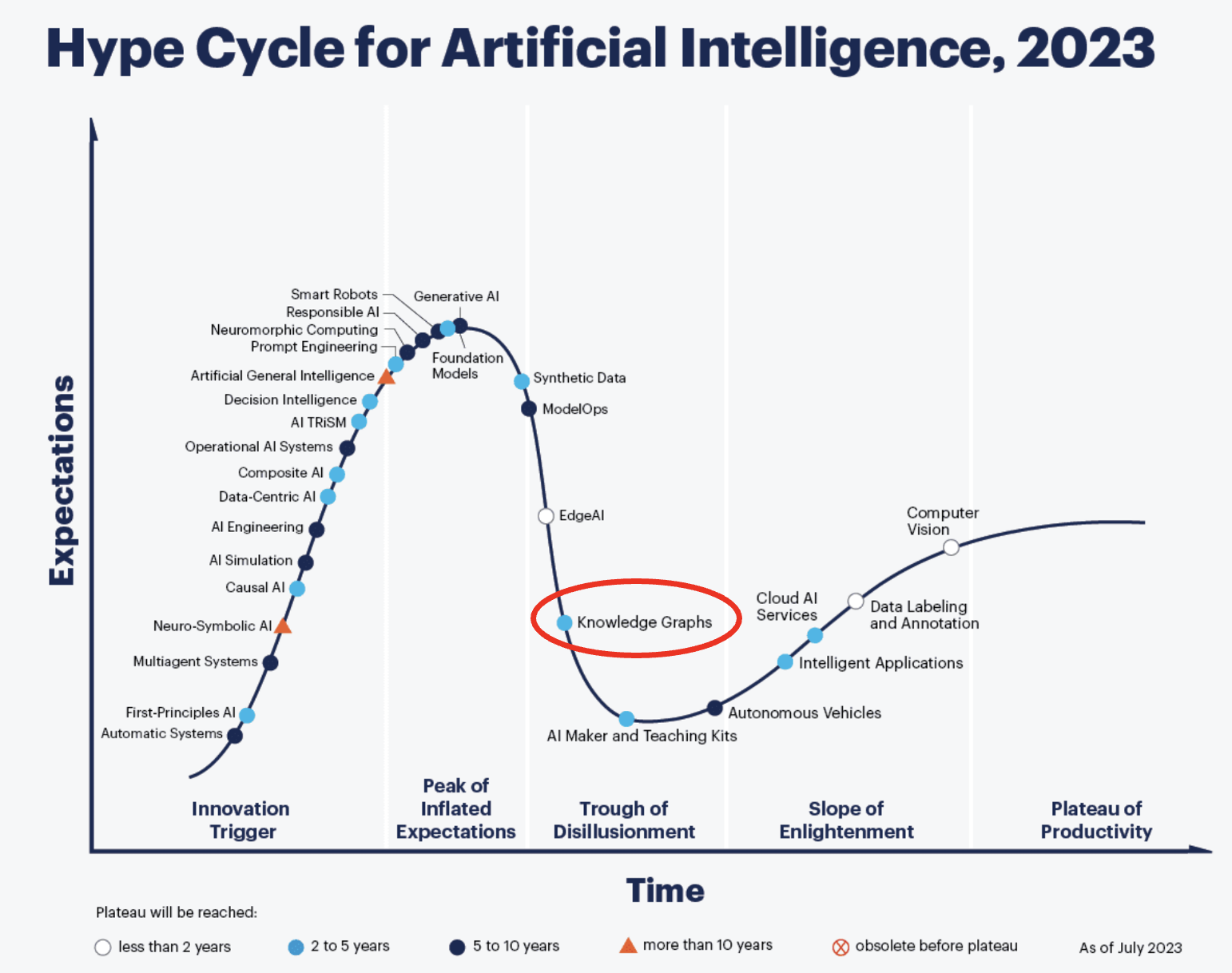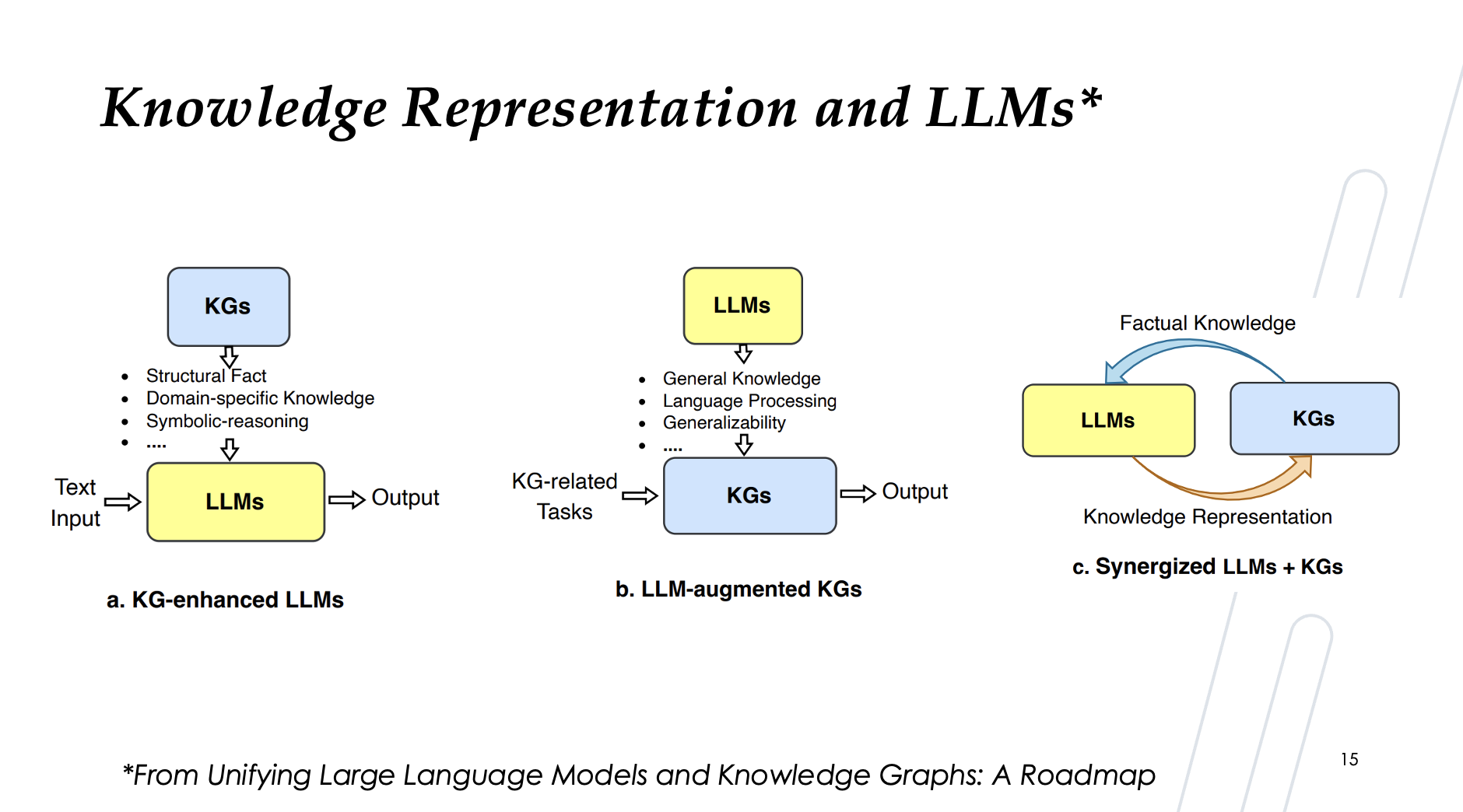Ontology for AI
Ontologies provide a crucial foundation for AI systems by establishing standardized terminology and relationships that can be understood by both humans and machines.
By embedding ontological structures into AI applications, we can ensure greater transparency, alignment with human values, and cross-cultural interoperability.
The Current AI Renaissance: Beyond the Hype

We are currently experiencing a remarkable "AI summer," characterized by unprecedented advancements in big data processing, computational power, and sophisticated machine learning techniques. The rise of Large Language Models (LLMs) has dramatically transformed what's possible in artificial intelligence, creating applications that would have seemed like science fiction just a decade ago.
However, this period of explosive growth also bears striking similarities to previous AI booms that ultimately led to disappointment and "AI winters." As seasoned observers of technological cycles, we must approach this moment with both optimism and critical awareness.
The first AI summer in the 1960s-70s was defined by bold predictions and unbridled optimism. Marvin Minsky famously declared in 1970 that "within three to eight years, we will have a machine with the general intelligence of an average human being." These predictions collapsed under the weight of technological limitations and fundamental misunderstandings about the nature of intelligence.
The second wave in the 1980s-90s saw the rise of expert systems: programs that solved problems about specific domains using logical rules derived from subject-matter experts. Despite initial promise, these systems ultimately failed because they were:
- Prohibitively expensive to maintain
- Difficult to update as knowledge evolved
- Nearly impossible to scale effectively
- Fundamentally brittle when facing novel scenarios
Today's AI systems, while vastly more capable, face similar challenges of maintenance, updating, scaling at a different level of abstraction.
The Semantic Web: Ontology and Agents Ahead of Their Time
Tim Berners-Lee's seminal paper on the Semantic Web in 2001 outlined a vision that was revolutionary but premature: a web of data that could be processed by machines through standardized ontologies and intelligent agents. The paper described "ontology agents" that would negotiate meaning between systems and enable truly intelligent information processing.
This vision was prescient but impossible to fully realize with the technology available two decades ago. The fundamental insight—that machine intelligence requires structured knowledge representation to be truly useful and reliable—was correct, but the execution environment wasn't ready.
The current AI renaissance presents a unique opportunity to fulfill the original promise of the Semantic Web. Today, we have:
-
Powerful Foundation Models: LLMs provide unprecedented natural language understanding capabilities that can bridge human communication and formal knowledge structures.
-
Mature Ontology Ecosystems: Decades of ontology development across domains from biomedicine to finance have created rich, interoperable knowledge resources.
-
Scalable Knowledge Graph Technologies: Modern graph databases and query languages make working with complex knowledge structures practical at enterprise scale.
-
Hybrid AI Architectures: Emerging systems combine neural approaches with symbolic reasoning, addressing the limitations of each approach in isolation.
This convergence creates the technical foundation for what we might call "Ontology-Enhanced AI" or "Knowledge-Grounded AI"—systems that leverage both the flexibility of neural networks and the precision of ontological representations.
Enhancing AI with Ontologies

LLMs face well-documented challenges that ontologies can help address:
- Hallucinations: Ontologies provide factual constraints that can validate LLM outputs against established knowledge.
- Temporal Consistency: Knowledge graphs encode temporal relationships that ground LLM reasoning in consistent timeframes.
- Domain Specificity: Domain ontologies capture specialized knowledge that may be underrepresented in general training data.
- Reasoning Transparency: Ontology-based reasoning paths provide explainable logic chains for AI decisions.
Several promising integration patterns have emerged:
- Knowledge-Enhanced Training: Incorporating ontological structures directly into model pre-training to improve factuality.
- Retrieval-Augmented Generation (RAG): Using knowledge graphs as retrieval sources for context-aware generation.
- Output Validation: Filtering LLM outputs through ontological constraints to ensure consistency and accuracy.
- Hybrid Reasoning: Combining neural generation with symbolic reasoning for complex problem-solving.
- Ontology Learning: Using LLMs to assist in extending and refining ontologies based on unstructured data.
Perhaps the most pressing application of ontology-enhanced AI is addressing alignment challenges within organizations. As AI systems proliferate across enterprise functions, they risk creating incompatible representations of core business concepts, leading to:
- Inconsistent decision-making across departments
- Inability to integrate insights across AI systems
- Loss of institutional knowledge as it becomes embedded in disconnected AI silos
- Regulatory compliance risks from inconsistent interpretations
Ontologies provide the shared conceptual foundation that enables AI systems to "speak the same language" across organizational boundaries.
Looking Ahead
We stand at a unique moment in the evolution of AI—one where the visionary ideas of the Semantic Web can finally be realized through the powerful capabilities of modern AI systems. By bringing together the precision of ontological knowledge representation with the flexibility of neural approaches, we can create AI systems that are not just powerful, but reliable, transparent, and aligned with human values.
The NCOR Network invites researchers, practitioners, and organizations to join us in this crucial work. Together, we can ensure that this AI summer leads not to another winter, but to a sustainable future where AI enhances human capabilities while operating within well-defined knowledge structures that reflect our understanding of the world.
For questions, collaborations, or to express interest in the proposed workshop on Ontologies for AI Alignment, please contact: [email protected]